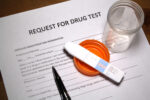Relapse During the Holidays: Know the Signs

Addiction relapse rates are similar to those of other chronic diseases like diabetes and heart disease. According to the National Institute on Drug Abuse, between 40 and 60 percent of people in recovery will relapse at some point.1
The risk of relapse is particularly high during times of increased stress, and for many, the holidays are about as stressful as it gets. Preventing relapse during the holidays may present particular challenges to those newly in recovery. Alcohol often flows freely during holiday celebrations, and family gatherings can trigger strong cravings for drugs or alcohol, often days before the actual event. For those who are single, feelings of loneliness and isolation are a major risk for relapse.
If you’re worried that your loved one may relapse during the holidays, here are some things you can do to help.
Know the Stages of Relapse
Relapse doesn’t usually happen overnight. Rather, it occurs in three predictable stages. Knowing the signs of each stage will help you recognize when your loved one might be in danger of relapsing.
Stage One: Emotional Relapse
During emotional relapse, your loved one isn’t thinking about using, but their emotions and behaviors are setting them up for a relapse later on. Signs of emotional relapse include:
- Bottling up emotions
- Withdrawing from friends or family
- Focusing on others’ problems or how others affect them
- Skipping meetings
- Neglecting self-care, such as poor eating and sleeping habits
Stage Two: Mental Relapse
Mental relapse finds a war going on in your loved one’s head. On the one hand, they want to use again, but on the other, they want to stay in recovery. Mental relapse starts with a conscious thought about using again, and it progresses to the point where a relapse is imminent. Signs of mental relapse include:
- Cravings
- Thinking about or talking about past use or the people they used with
- Glamorizing past use, or minimizing its consequences
- Looking for excuses or opportunities to use again
- Planning a relapse around others’ schedules
Stage Three: Physical Relapse
It’s very hard to stop a relapse once it reaches the physical stage, which is where your loved one seeks out drugs or alcohol and uses again. Getting your loved one help as soon as possible after a relapse will help him get back on the road to recovery quickly.
What to Do After a Relapse During the Holidays
Relapse during the holidays isn’t the end of recovery. In fact, it’s widely viewed as an opportunity to identify and develop the missing skills that led to it. Doing so brings a person back to recovery stronger and better prepared to go the long haul.
How you and your loved one approach a relapse plays an important role in recovery, according to an article in the Yale Journal of Biology and Medicine.2 People in recovery tend to view a relapse as a failure, and they tend to be very hard on themselves. They discount all of the progress they’ve made, and they see the relapse as a confirmation of their negative views about themselves. This can make it difficult to get back on track with recovery.
Approaching a relapse with a positive attitude, keeping in mind all of the successes enjoyed so far, is essential for quickly recovering from it.
If your loved one relapses during the holidays, getting help right away is crucial. Contact your loved one’s sponsor, therapist or aftercare case manager. Getting back into treatment or therapy to address what went wrong and develop missing skills will prevent the same type of relapse from occurring again.
With the right attitude and the right help, a relapse can ultimately lead to better skills and better relapse prevention strategies, which will get your loved one back on track with recovery stronger than ever.
References:









